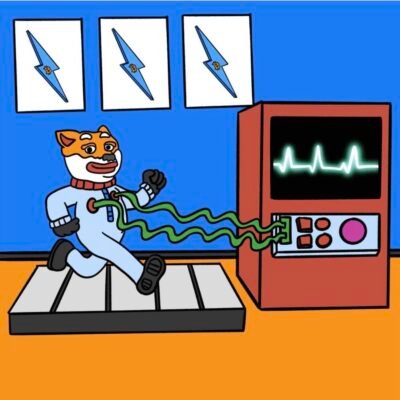As is usually the case around the All-Star break, Major League Baseball Commissioner Rob Manfred pops up quite a bit with annual “state of the league” media interactions.
Often, his quotes come with some sort of player-salary cost control messaging.
Equally as predictable are retorts from the MLB Players Association, pushing back at any hint of a salary cap or any other form of legislation that would restrict spending on players.
With the labor deal between the two sides expiring in December 2026, the verbal salvos in advance of this year’s Midsummer Classic are being viewed with even more scrutiny.
And the Pittsburgh Pirates are smack-dab in the middle of the tug of war.
This year, it was the union that got the saber-rattling going first when MLBPA Deputy Director Bruce Meyer went on the “Foul Territory” podcast to push against the notion that MLB needs a salary cap to improve fan perception of the game’s competitive balance.
He took a dig at the Pirates in his remarks.
“I think the whole premise is wrong,” Meyer said Wednesday. “Baseball hasn’t had a repeat (World Series) winner in 26 years. To fans in small markets, I would say, ‘Look, competition is crucial for us, crucial for players. Our market system that we have is not perfect by any means, but it relies on competition.’ … To the extent we have teams that are unwilling to compete, it’s not because the Dodgers went out and signed some players. That doesn’t explain why the Pittsburgh Pirates, for example, don’t go out and spend money.”
OK, but … As “The Athletic’s” Evan Drellich pointed out in that publication’s analysis of Meyer’s comments, the Los Angeles Dodgers have a projected 40-man payroll of a record $407.8 million in 2025. The Miami Marlins come in last at $85.6 million. Pittsburgh is 26th at $113.8 million.
That’s a massive gap, and the last team in the bottom half of salaries to win a World Series was the 2015 Kansas City Royals. Per Baseball America, in the wild card era (1995-present), 27 of the 30 teams to win a World Series ranked in the top half of MLB in opening day payroll.
Meanwhile, on Monday, Manfred went on “The Pat McAfee Show” and positioned the Pirates as victims of baseball’s current economic system, as opposed to perpetrators of its flaws.
“Pittsburgh is a great sports town and there’s a lot of really passionate Pirates fans..
They just want to look at the system and think that they have a fair chance to win..
We need to deal with that issue” ~ Rob Manfred#ProgrumSummerRoadTrip pic.twitter.com/GLjBUbt9Lv
— Pat McAfee (@PatMcAfeeShow) July 14, 2025
“Pittsburgh is a great sports town,” Manfred pandered. “There are tons of really passionate Pirates fans who remember when the Pirates were a great team, year in, year out. They just want to look at the system and say, ‘We’ve got a fair chance to win,’ when you’re sitting around in February, looking at spring training and what the year is going to be like. We need to deal with that issue.”
OK, but … The Pirates appeared to have a “fair chance” to win in 2013-15. They just didn’t. Beyond that, the system isn’t exclusively to blame for their ineptitude over the course of 32 years when they have only managed four winning seasons, not to mention the fact that they haven’t finished a full playoff series victory since 1979.
Many other small-market teams can at least boast better than that.
More sports
• Pirates’ Oneil Cruz wows with moonshots but is eliminated in 2nd round of Home Run Derby
• Neal Shipley closing in on PGA Tour card
• Pirates’ Paul Skenes ready to start All-Star Game again: ‘A huge honor and huge opportunity’
Yet, here we are with the Pirates being simultaneously positioned as both Oliver Twist and Ebenezer Scrooge at the same time. Expect that to continue for the next 17 months between now and whenever the CBA expires.
And through whatever ensuing labor stoppage that may occur.
The MLBPA seems to want a salary floor without yielding on a cap. That’s not going to happen.
Meanwhile, MLB has no idea what its new media rights deal is going to look like after it expires after the 2028 season, local television package and streaming deals are all over the place right now, and owners still don’t seem fully aligned on how to design a salary cap, let alone fully agree upon it.
It’s Major League Baseball. The executives change, but the economic challenges don’t. The 162-game season, the local revenue disparities and lack of an effectively distributed national television package for all 30 organizations present hurdles to a salary cap system that don’t exist in the other sports.
“The media environment right now is really kind of disrupted, particularly at the local level. It’s hardest for (MLB), because we are the most locally dependent (of the leagues) on the RSN model,” Manfred said. “We want to sell more games nationally. We think it’s good for our exposure. We also believe that the buyers that are out there are going to be national buyers. Particularly the streaming companies.”
But Manfred doesn’t think that’s the only problem.
“We need to streamline our offering. We need to get out of the blackout business,” Manfred continued. “We are in too many places right now. We’ve experimented. Apple has been a great experiment, but we do have a lot of fragmentation. We need to get into a more streamlined model.”
“We wanna sell more games nationally and we think it’s good for the game..
We need to streamline our offering and get out of the blackout business..
We’ve got people that wanna watch games and they can’t” ~ Rob Manfred #ProgrumSummerRoadTrip pic.twitter.com/1TO4RKxte3
— Pat McAfee (@PatMcAfeeShow) July 14, 2025
With all those variables still so far from being clarified, I can’t imagine how MLB could effectively push for a cap that their owners collectively agree upon. It just strikes me that 2026 is too close of a deadline to go hard with a cap plan to the MLBPA, given the changing television landscape.
So expect the Pirates to keep being portrayed as the poor orphan children begging for table scraps, all while owner Bob Nutting keeps stuffing his doggie bag full of leftovers from revenue sharing.
And expect very little change throughout Major League Baseball in the future.
Tim Benz is a Tribune-Review staff writer. You can contact Tim at tbenz@triblive.com or via X. All tweets could be reposted. All emails are subject to publication unless specified otherwise.





